Ecolo Showcases Sustainable Odor Control Breakthroughs at WasteExpo 2013 in New Orleans
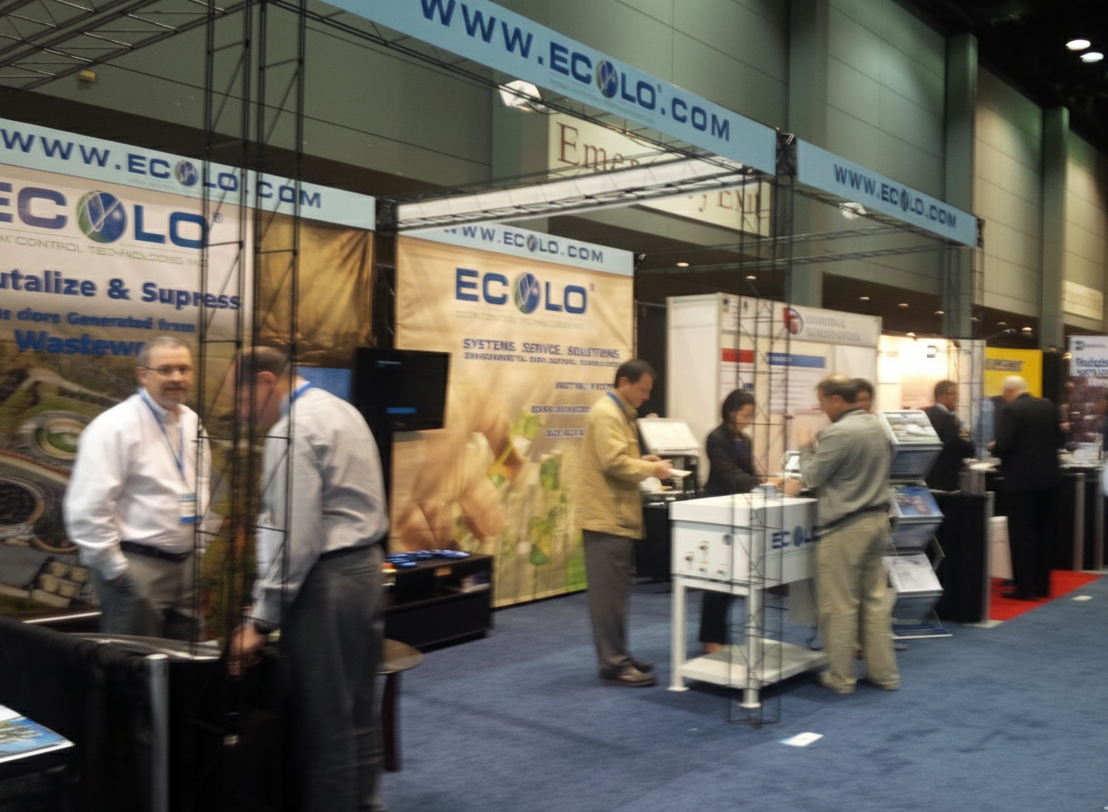
Introduction: A Global Stage for Innovation
Every May, the waste and recycling industry converges on North America’s largest tradeshow — WasteExpo. In 2013, the vibrant city of New Orleans, Louisiana became the meeting ground for thousands of industry leaders, technology providers, municipal managers, and innovators committed to improving the way we manage waste and recycling.
This year’s event wasn’t just about equipment and logistics. It was about the future of sustainability, and one of the central topics drawing attention was odor control. For facilities managing organics, landfills, or wastewater, odor isn’t just an inconvenience — it’s a community relations challenge, a compliance risk, and a reputational factor.
Ecolo Odor Control Technologies, a global leader in the field, used WasteExpo 2013 to highlight how sustainable odor control solutions can reshape industry standards.
Why Odor Control Matters
Odor emissions are among the most pressing issues in waste management. Landfills, composting facilities, transfer stations, and recycling plants face constant scrutiny from regulators and surrounding communities. A single persistent odor complaint can lead to fines, permit delays, or strained public trust.
At WasteExpo 2013, sessions and exhibits reinforced a clear message: odor management is not optional — it is essential. By linking odor solutions to sustainability, compliance, and ESG (Environmental, Social, and Governance) goals, companies like Ecolo demonstrated that odor control is as much about responsibility as it is about technology.
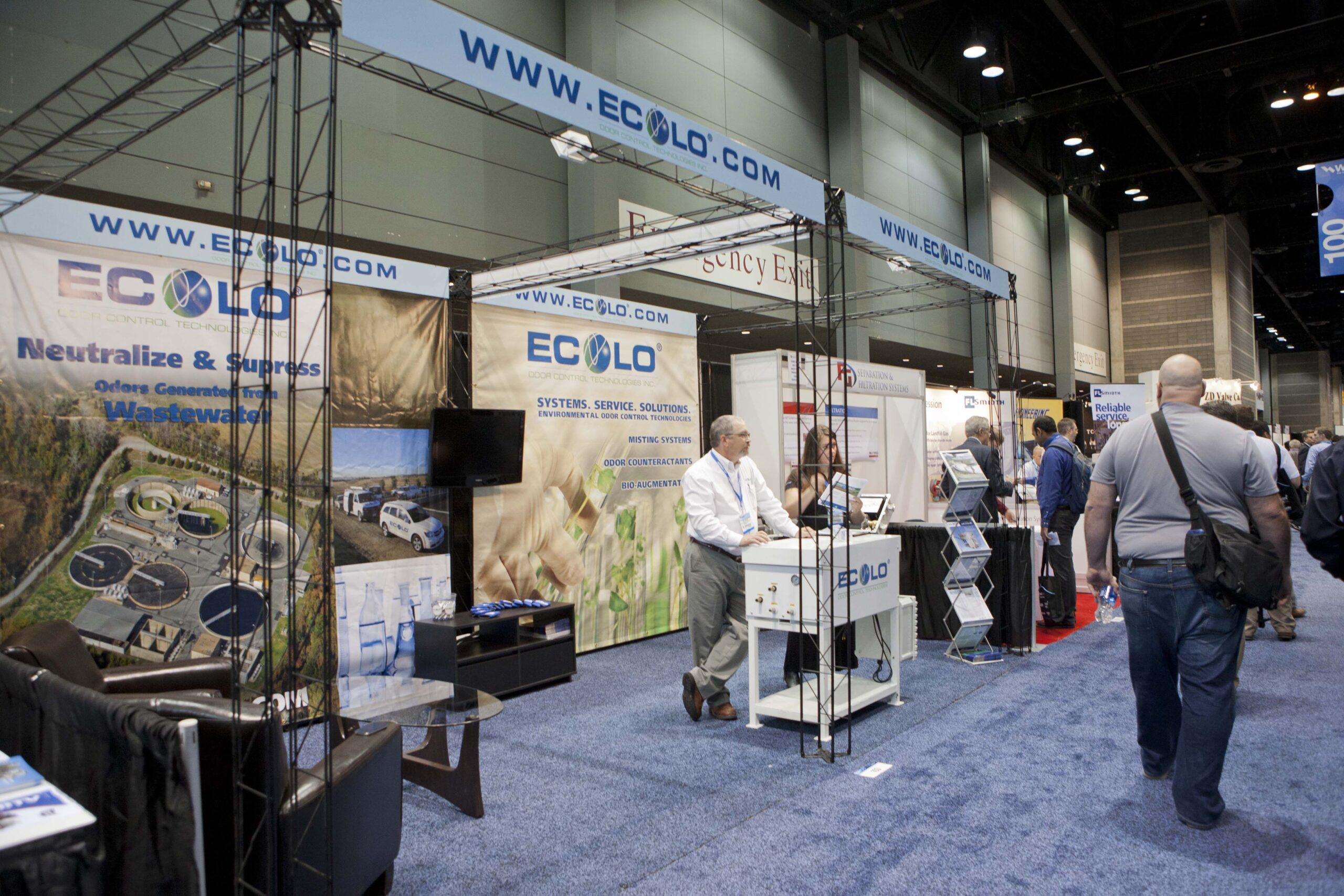
Sustainable Odor Control: Leading the Conversation
One of the biggest themes at WasteExpo 2013 was sustainability. Attendees wanted solutions that were effective, safe for the environment, and cost-efficient.
Ecolo’s Sustainable Odor Control line attracted significant attention. Their approach emphasized:
Biological solutions such as BioStreme micronutrients, which enhance natural microbial processes to break down odor-causing compounds.
Green chemistry neutralizers like AirSolution, made with biodegradable, non-toxic ingredients.
Low-energy misting systems such as AirStreme and ACU series, designed to deliver targeted odor neutralization with minimal environmental footprint.
By positioning odor control as part of the sustainability movement, Ecolo captured the interest of both municipal managers and private operators who needed to balance environmental performance with operational budgets.
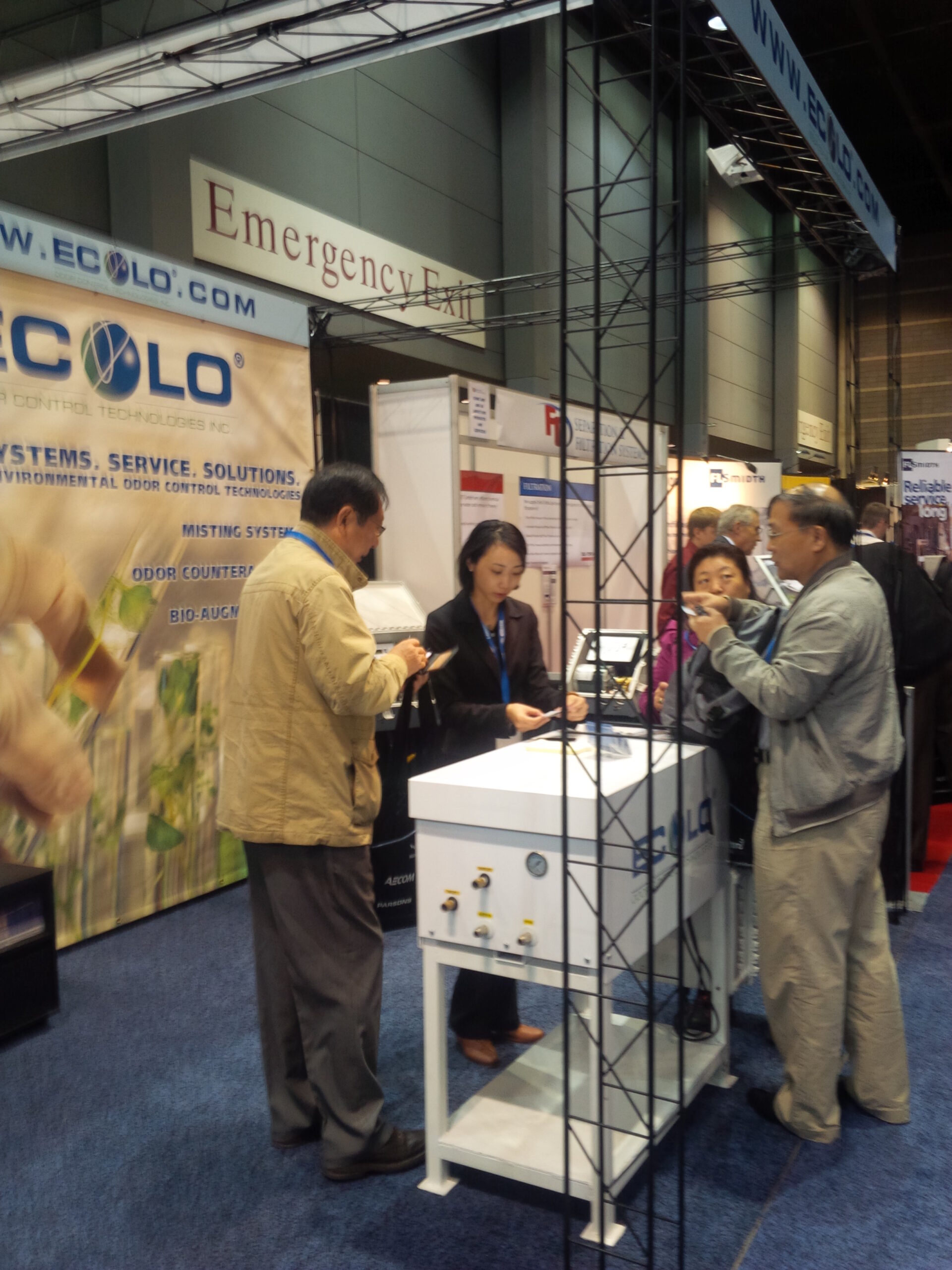
Organics Recycling Odor Management
Another hot topic at WasteExpo 2013 was organics recycling. With food waste diversion programs growing rapidly across North America, composting facilities and anaerobic digesters were booming. But with that growth came a challenge: odor complaints.
Ecolo addressed this directly with its BioStreme solutions, showing how natural microbial enhancements reduce odor at the source while supporting biological stability. Exhibitors and attendees engaged in discussions around:
Composting facilities struggling with poultry sludge or green waste.
Food waste processing operations facing community pushback.
Anaerobic digesters where sludge stability directly affects gas yield and odor.
Ecolo presented strategies to help operators “scale organics without the stench.” Their odor management solutions allowed facilities to expand without triggering public resistance — a crucial point for municipalities eager to boost recycling rates.
Landfill Gas Odor Solutions
Landfills remain the backbone of waste management in North America, and landfill gas (LFG) was another major focus of WasteExpo 2013.
The problem: LFG contains hydrogen sulfide, ammonia, and other odorous compounds that can travel far beyond landfill boundaries. Operators needed actionable solutions.
Ecolo showcased Landfill Gas Odor Solutions such as:
AirSolution neutralizers delivered via perimeter misting systems.
Vapor technologies (XStreme line) designed for fence-line applications.
Integration with flare stack optimization and gas collection systems.
For many attendees, the message was clear: odor control is a necessary partner to LFG management, not a separate issue.
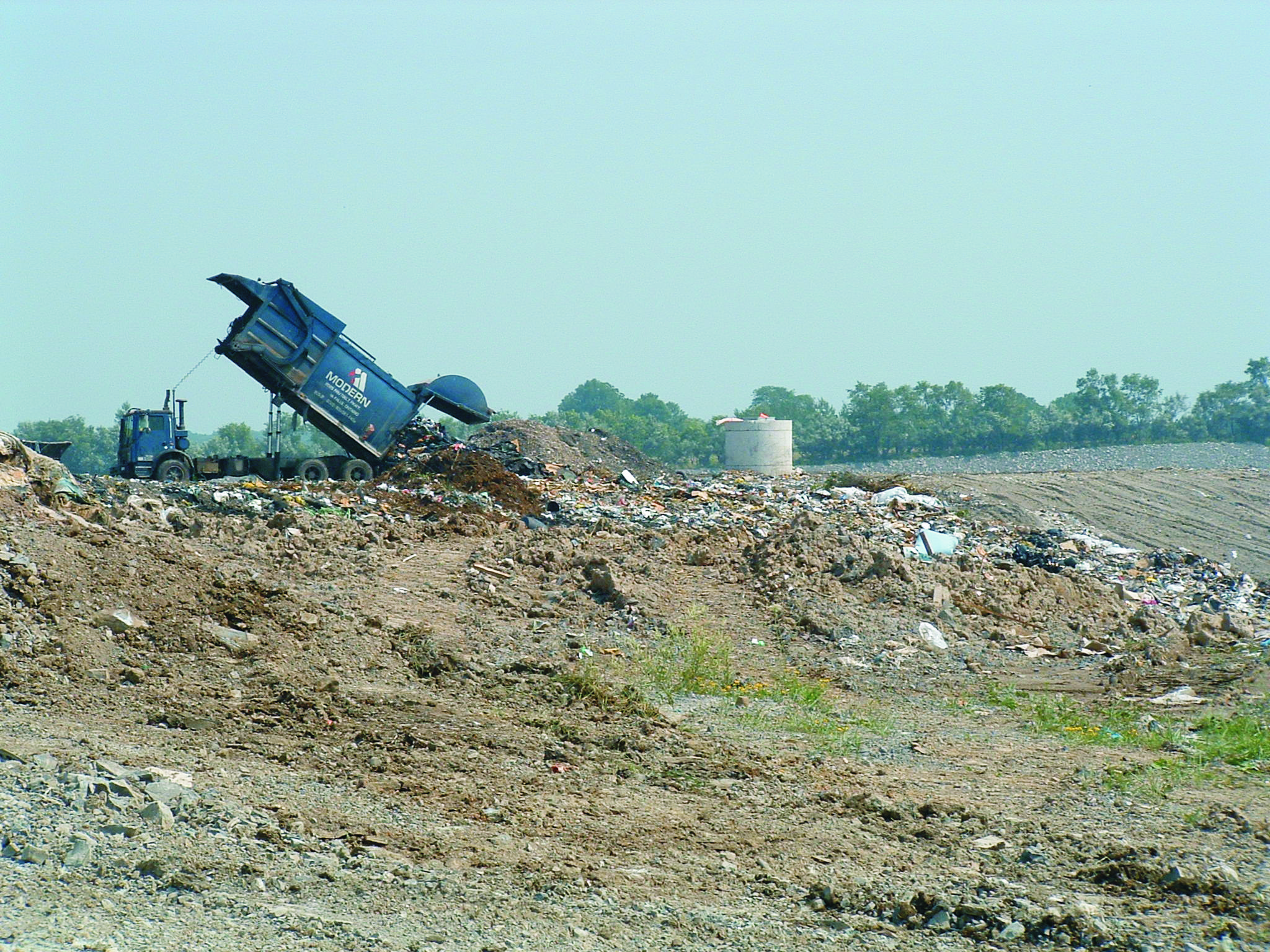
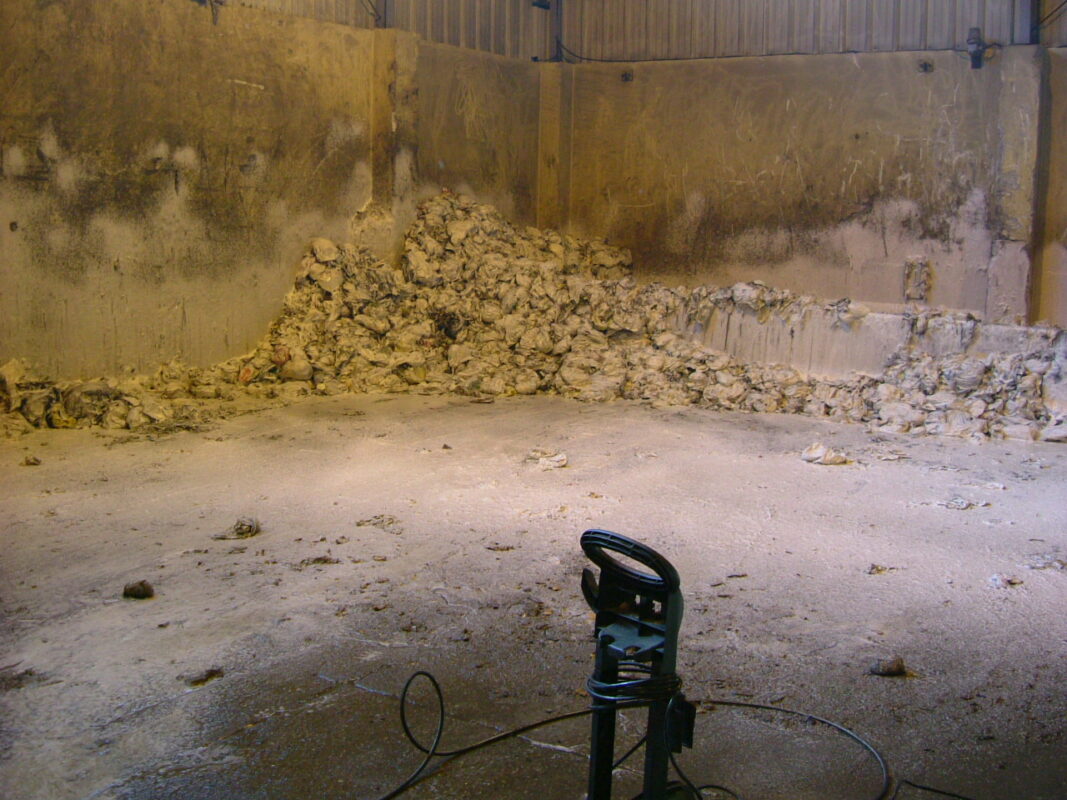
Chemical vs. Biological Odor Control
One of the most engaging conversations at the show floor was around the debate: chemical vs. biological odor control.
Ecolo positioned itself uniquely — offering both approaches and educating operators on how to choose:
Chemical neutralizers like AirSolution are fast-acting, versatile, and highly effective in industrial settings.
Biological enhancements like BioStreme provide long-term stability, support microbial activity, and improve treatment efficiency.
The takeaway from WasteExpo 2013 was that there’s no one-size-fits-all solution. The best results come from combining approaches, tailored to each facility’s scale, climate, and odor challenges.
Odor Compliance and Community Relations
Odor isn’t just a technical challenge — it’s a community relations issue. Many sessions at WasteExpo 2013 focused on how facilities can reduce complaints, improve transparency, and avoid regulatory penalties.
Ecolo highlighted its role in helping clients:
Stay compliant with air quality regulations.
Prove performance with real-time monitoring systems.
Build goodwill by showing neighbors they are proactive.
By linking odor control with compliance and community trust, Ecolo positioned itself as not just a technology provider, but a partner in responsible operations.
Nisi a diam id a himenaeos condimentum laoreet per a neque habitant leo feugiat viverra nisl sagittis a curabitur parturient nisi adipiscing. A parturient dapibus pulvinar arcu a suspendisse sagittis mus mollis at a nec placerat sociosqu himenaeos litora fames habitant suscipit tempus scelerisque ridiculus mi ullamcorper per ridiculus proin condimentum egestas taciti molestie hendrerit sit senectus iaculis.
Ecolo at WasteExpo: Showcasing Innovation
At their booth in New Orleans, Ecolo Odor Control Technologies drew in industry professionals with live demonstrations and case studies. Success stories from wastewater plants, landfills, and composting facilities illustrated measurable results such as:
90%+ odor reduction within weeks.
Complaint reductions of 70–80%.
Sustained operational acceptance from regulators and communities.
Attendees left with a clear sense that odor control can deliver both environmental and financial returns when approached with the right strategy.
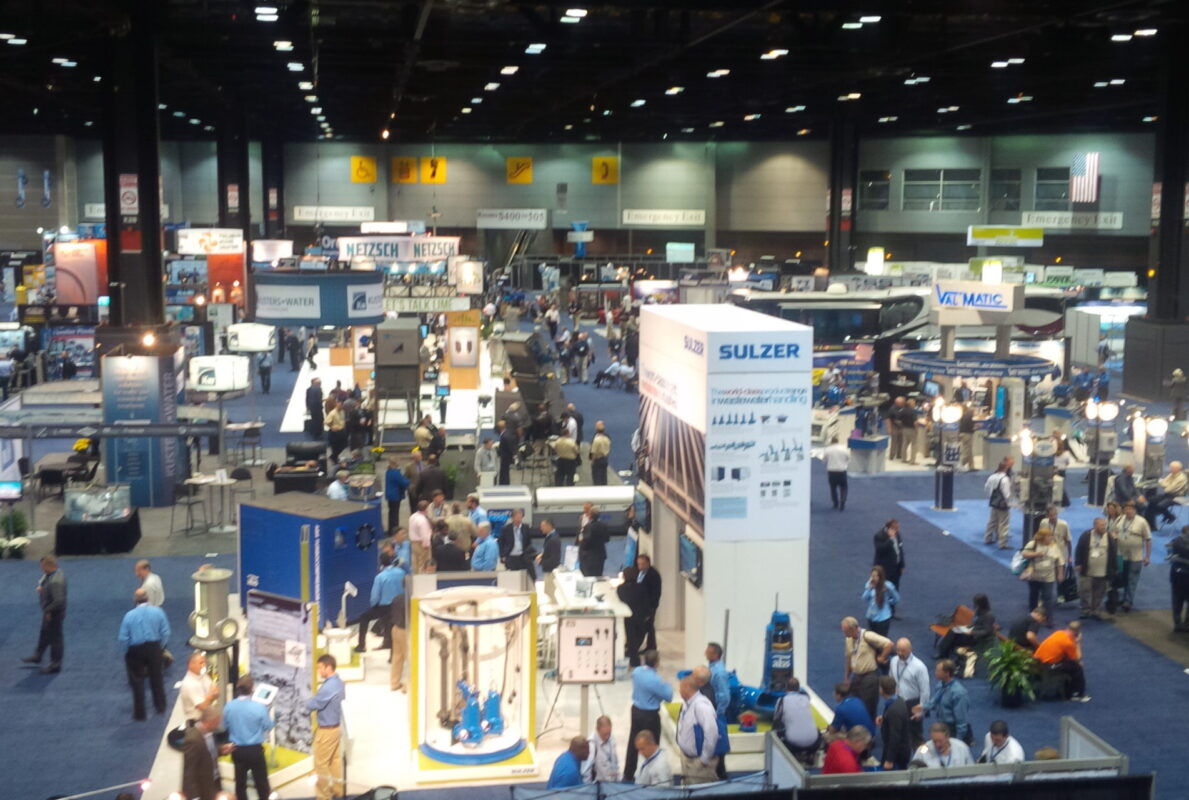
Key Takeaways for the Industry
WasteExpo 2013 reaffirmed that odor management is at the core of sustainable waste and recycling operations. From sustainable odor control to organics recycling, from landfill gas solutions to compliance strategies, Ecolo positioned itself as a trusted leader ready to meet the industry’s most pressing needs.
Top Lessons from the Event:
Odor control is a sustainability issue — not just a nuisance.
Organics recycling growth requires reliable odor management.
Landfill gas odor solutions must integrate with compliance.
The chemical vs. biological debate is best solved with a balanced approach.
Community relations are as important as technology performance.
Conclusion
The WasteExpo 2013 event in New Orleans was a milestone for the waste and recycling industry. With sustainability, compliance, and innovation at the forefront, companies like Ecolo demonstrated that odor control is a cornerstone of responsible operations.
As North America’s largest waste and recycling trade show, WasteExpo proved once again that it’s not just about trucks, bins, and processing plants — it’s about the air we all share.
By leading conversations on Sustainable Odor Control, Organics Recycling Odor Management, Landfill Gas Odor Solutions, Chemical vs. Biological Odor Control, and Odor Compliance and Community Relations, Ecolo continues to show why it is a global partner trusted by municipalities and industries alike.


